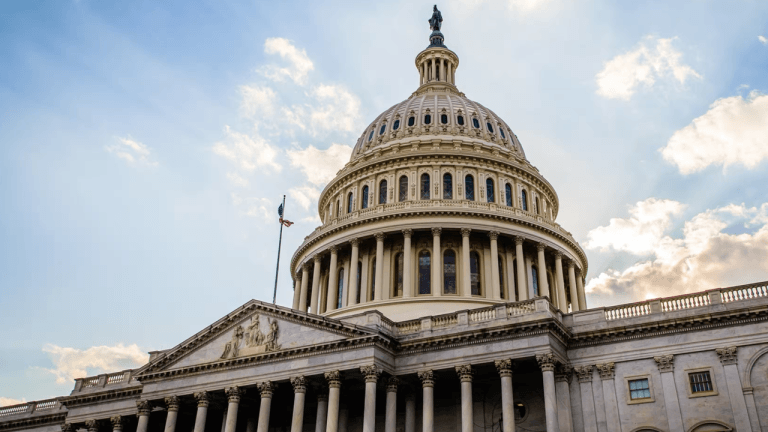The United States Financial Industry Regulatory Authority, or FINRA, has once again invited itself to the digital assets oversight party for at least another year. Specifically, on July 9, FINRA published “Regulatory Notice 20-23,” which encourages broker-dealers to notify their assigned FINRA risk monitoring analyst as to whether they, their affiliates or their associated persons conduct, or intend to conduct, digital asset activity, including non-securities activity.
The expansiveness of this request cannot be overstated. From associated persons who buy and sell Bitcoin (BTC) in their free time to affiliated non-FINRA members that engage in separately regulated non-securities digital asset activities, all are requested to report to FINRA. The request not only expands FINRA’s regulatory reach beyond its securities mandate but, more importantly, beyond its expertise.
This overreach is troublesome because, firstly, FINRA’s mandate is, and should be, limited exclusively to the activities of its members and the securities industry. Secondly, the direct reporting to FINRA of the digital asset activity of a member’s affiliate and associated persons exceeds the scope, intent and language of the relevant FINRA rules. Given that Regulatory Notice 20-23 is essentially a reissuance of its prior digital assets reporting request, it indicates that FINRA shows no sign of abating its regulatory intrusion into the non-securities digital asset landscape and its attempts to expand its jurisdiction beyond its members.
FINRA’s mandate and expertise is for securities broker-dealers
FINRA’s mandate within its bylaws is confined to the securities and investment banking sector. FINRA’s overall purpose includes, among other elements:
“To promote through cooperative effort the investment banking and securities business, to standardize its principles and practices, to promote therein high standards of commercial honor, and to encourage and promote among members observance of federal and state securities laws.”
FINRA has developed expertise and skill with regard to securities. The digital assets for which FINRA is requesting reporting are predominantly not securities and are beyond its mandate and purpose.
FINRA broadly defines digital assets as follows:
“Cryptocurrencies and other virtual coins and tokens (including virtual coins and tokens offered in an initial coin offering (ICO) or pre-ICO), and any other asset that consists of, or is represented by, records in a blockchain or distributed ledger (including any securities, commodities, software, contracts, accounts, rights, intangible property, personal property, real estate or other assets that are ’tokenized,’ ’virtualized’ or otherwise represented by records in a blockchain or distributed ledger).”
While there is still open debate as to whether some of the digital assets mentioned are securities, many such digital assets are not securities as a matter of settled law, and they are almost uniformly offered or transacted by entities outside of FINRA’s regulatory purview. Requiring broker-dealers to report on non-security digital asset activity is clear regulatory overreach. FINRA should constrain the requested reporting to only digital assets that qualify as securities.
Direct reporting of associated persons’ digital asset trading is unduly burdensome
FINRA is requesting that broker-dealers directly report digital asset activity related to their affiliates and associated persons. FINRA states that its request is under the authority of FINRA Rules 3210, 3270 and 3280, which address accounts at other broker-dealers and financial institutions, outside business activity and private securities transactions, respectively.
However, not only are most FINRA member affiliates not considered associated persons and therefore not subject to FINRA Rules 3210, 3270 and 3280, but these rules are related to the internal information-gathering policies of broker-dealers and do not impose upon them an obligation to separately and directly report such activity to FINRA.
Furthermore, FINRA Rule 3210 only establishes an obligation for associated persons to obtain consent from a FINRA member before opening an account at an institution through which “securities transactions” can be carried out — seemingly excluding the vast majority of digital asset institutions and related activity. FINRA’s request that broker-dealers now depart from long-standing practice and, in addition to their internal reporting policies, now directly report to FINRA their affiliates’ and associated persons’ digital asset activities is onerous, intrusive and beyond the scope of FINRA Rules 3210, 3270 and 3280.
Notwithstanding the fact that non-securities digital asset activity is already heavily and separately regulated, it is unclear how this administratively burdensome reporting requirement plays any role in furthering investor protection — the mission at the core of FINRA’s mandate.
Never-ending quasi-regulatory oversight
Since first making the request in 2018, FINRA has in each successive year asked broker-dealers to report digital asset activity with no indication or threshold rationale for when to stop. The original motivation for the required reporting was to understand the growing digital asset market. Now, the stated purpose is to remain updated on the evolving market. There is seemingly no end in sight.
This regulatory overreach is a land grab in plain sight that is being presented palatably as an incremental reporting request each year. This continued, seemingly unending enhanced reporting requirement effectively constitutes a change to several relevant FINRA rules — a change that has not been enacted through proper methods or been approved, as required, by the U.S. Securities and Exchange Commission.
Broker-dealers are precariously beholden to FINRA and, in response, have started to incorporate this thrice-issued request into their standing written supervisory procedures. This no doubt creates an additional burden for broker-dealers that has not been reviewed for cost-benefit analysis as is typically required in the FINRA rule-making process. Regardless, it remains highly suspect whether FINRA can legitimately request information that is so clearly outside its mandate and beyond the reaches of its existing rulebook, let alone the prudence of such an endeavor, given the robust regulatory oversight of non-securities digital assets by competing regulators.
Conclusion
FINRA’s request for digital asset reporting should be viewed critically. This action risks establishing a troubling precedent that allows it to exceed its mandate and perpetrate regulatory creep into areas far beyond its securities-driven mission where its abilities to protect investors are dubious and its expertise is minimal.
In addition to digital assets, broker-dealers continue to evolve and are expanding product offerings beyond traditional securities brokerage and, in many instances, working with non-securities industry partners to provide banking, debit card and payment solutions.
If FINRA’s approach to digital assets is any indication, there is legitimate concern that it will continue to stray further and further afield from its original securities-focused mandate by implementing similar, albeit incremental, expansions of its regulatory purview under the guise of better understanding and exploring these growing non-securities business lines. While admirable, this exercise should only be conducted, if at all, in a manner consistent with its regulatory authority — and not on the backs and at the expense of FINRA members and their associated persons.
The views, thoughts and opinions expressed here are the authors’ alone and do not necessarily reflect or represent the views and opinions of Cointelegraph.
This article was co-authored by Ethan Silver, William Brannan and Alexander Zozos.
Ethan Silver, William Brannan and Alexander Zozos are attorneys with Lowenstein Sandler. They advise cryptocurrency, blockchain and digital asset businesses navigating federal and state regulatory frameworks. They also counsel cryptocurrency trading platforms, exchanges, custodians and related businesses with respect to federal securities laws and work with technology-focused broker-dealers and robo-advisors on formation, structuring and regulatory matters. Ethan is the chair of the firm’s fintech practice, in which Will is counsel and Alexander is an associate.




